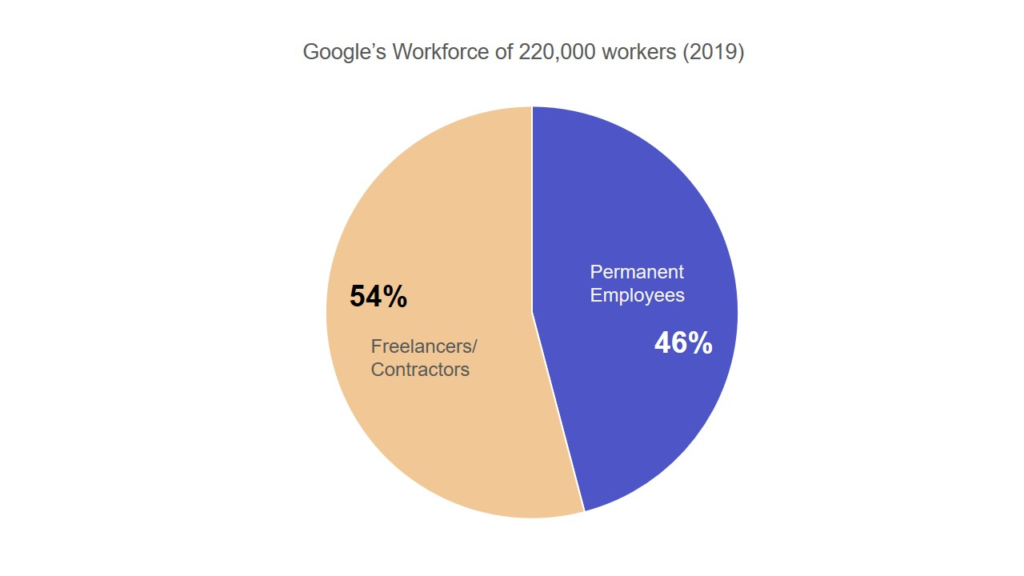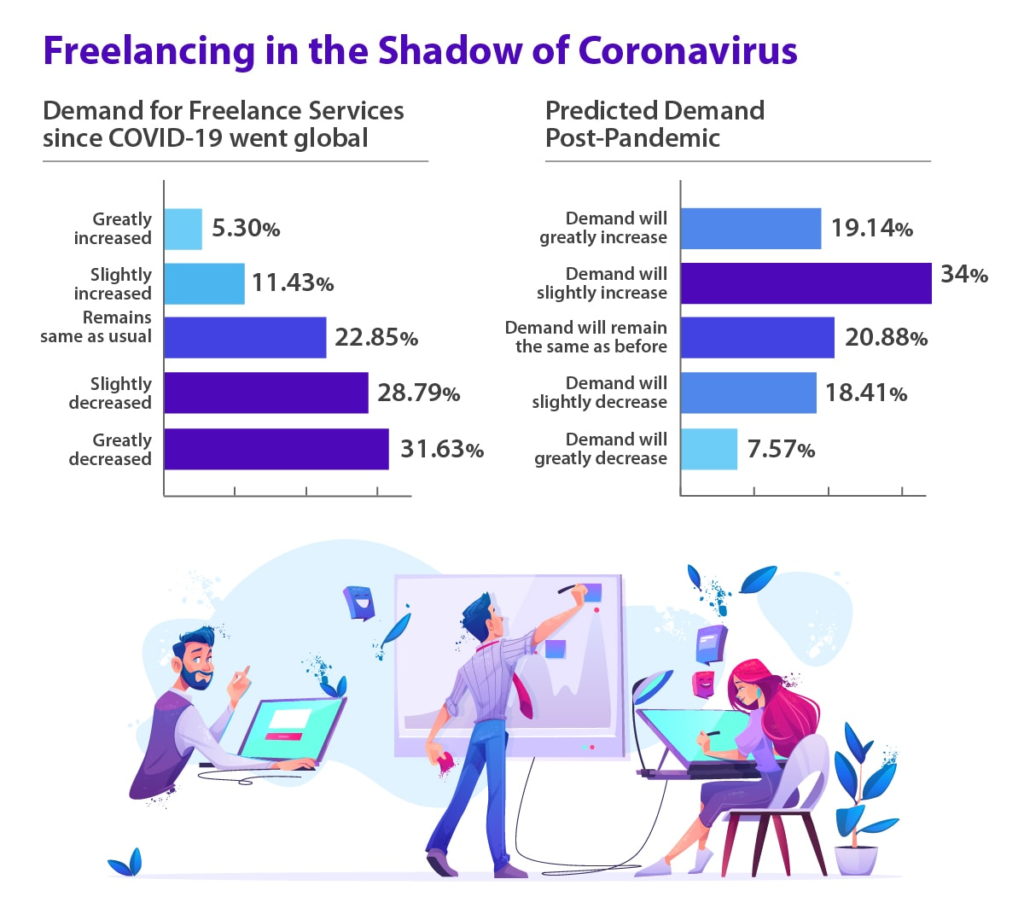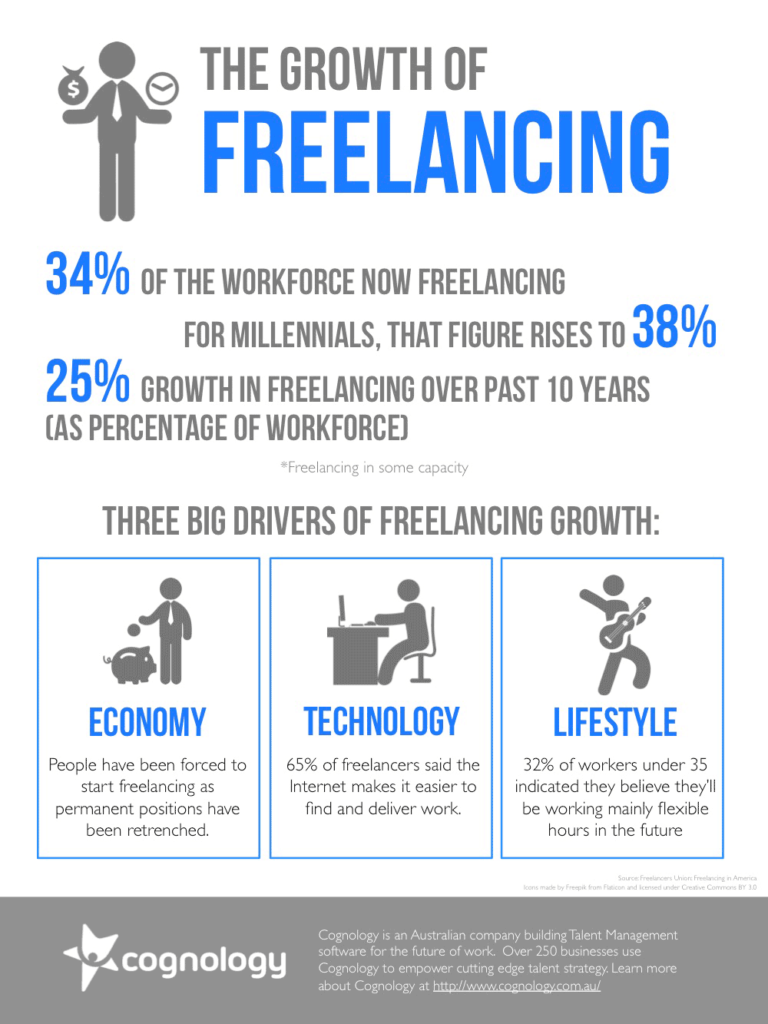
The 21st-century economic system has seen an explosion of freelancers in the workforce. There are several reasons businesses prefer freelancers. They may want a small, flexible workforce and may find freelancers convenient when they are just starting out.

There are many benefits to hiring freelancers. One such economic benefit is using a pay-per-project model rather than a fixed salary. Also, when using freelancers, you can hire them based on super-specialization. By the nature of the profession, businesses are not tied down to a specific freelancer.
There are disadvantages as well—unfamiliarity with the brand, remote operations, lack of face-to-face meetings, and conflicting freelance priorities.

Freelancer Management: Why It Is Important

There are many upsides to hiring freelancers. But there are some downsides as well.
Sometimes a team consists of freelancers from diverse backgrounds that speak different languages. They may come from different work cultures. Also, the lack of personal contact brings its own challenges with it.
This is where freelancer management comes in. Managing freelancers needs a solid system. This minimizes the disadvantages of hiring freelancers and maximizes the advantages.
A robust freelancer management system enhances the agility and flexibility of the firm. It also saves time and corporate resources. This is why freelancer management is important.
10 Freelancer Management Tips

1. Organize the freelancer ecosystem
Organize the freelancer ecosystem within your firm. Solopreneurs and small teams often overlook organization. But as the size of your freelancer workforce increases, you need to organize.
Note key challenges in freelancer management on paper. Then work out tangibly how you will deal with them: document editorial calendar, sales funnel, customer FAQs, and significant processes. If organizing seems overwhelming, start small and simple.
2. Use a process to hire freelancers.
Hire freelancers using processes and systems, and do it carefully. Map out all the employee skills, traits, and personas. Outline the employee’s nature in terms of experience and communications skills.
Once you know exactly what you are looking for in an employee, carefully frame the hiring process. You need to hire freelancers who contribute the maximum to your business and are fun to work with.
3. Onboard freelancers with effective systems.
Freelancers need to be acclimatized to the job and your work processes. Don’t throw them into the water without teaching them to swim. In long-term contracts, especially, you need to put them through a job orientation.
All this involves introducing freelancers to existing employees. Also, you need to ensure they get in sync with company culture. Agree with them on communication modes and let them know what you expect from them.
4. Explain your brand identity to new freelancers.
They should know what the company’s soul is and what it stands for. A copywriter should know how the company speaks, and a graphic designer should know your colors and fonts. Familiarize them with existing company materials.
5. Define expectations
Let your freelancer know what they need to achieve in the job. How do you want work carried out? Clarify the job elements. However, don’t be highly prescriptive because freelance work needs space and freedom.
6. Establish a work deadline
Freelancers thrive on deadlines and take up multiple projects at one time. So, don’t give them essential projects with an extremely short deadline. They might not be able to complete a last-minute job. Also, you need to ensure that you meet your own deadlines as well.
7. Use the available workflow tools effectively.
Today, there are several tools available that simplify communication and collaboration. These include Trello, Asana, Slack, Zoom, and many more. Businesses don’t need to rely on email solely. The project management options make it possible for businesses to manage freelancers effectively.
8. Track freelancer workflows and offer them feedback.
This helps understand how freelancers are doing at their job and where they can improve. You can then offer this feedback to the freelancers to continually improve their performance.
After setting job expectations, regularly check if freelancers are meeting them. A weekly call to touch base with freelancers is also very useful.
9. Support freelancers through their journey.
It isn’t just about good karma. It is a professional thing to do. Mentor and coach them. This creates a positive work culture that impacts the organization at a higher level. Give them feedback at a personal level so that they work effectively and grow personally.
10. Sign a freelancer contract with your team.
A written agreement helps in the actual deliverables being fulfilled. Add all the necessities, including NDAs.

This list of ten steps to manage freelancers might seem overwhelming. However, when you get started with it, it soon becomes second nature. Treating freelancer management as a set of processes makes work easy and optimized.
Getting freelancers to work effectively for your business can often give you a crucial edge over competitors. Define employee roles vis-a-vis freelancer management. With the right processes in place, freelancer management is not only easy, but it bears the fruits of corporate success.
FAQs
Freelancer management is easy when you know how to. Initially, freelancer management takes time and effort. With the right processes in place, you can manage freelancers with ease.
Freelancer management is done using the right tools like Asana, Trello, Basecamp, Zoom, Slack, Skype, etc. The key is clear and real-time communication.
Businesses can scale using freelancers. The important thing is to develop proven processes for their management.
Freelancing is becoming increasingly essential in modern businesses. The Freelance Forward report 2021 reveals that 36% of the U.S. workforce freelanced in the past year.
Creative jobs and jobs requiring one-off skills are some kinds of jobs that can be outsourced to freelancers.
Latest Blogs
Explore how Google’s 2025 AI search updates triggered ranking chaos. Learn actionable strategies to adapt your SEO for AI Overviews, zero-click searches, and SERP volatility. Stay ahead now.
Learn how to rank on AI search engines like ChatGPT, Perplexity, and Gemini by optimizing your content for authority, structure, and relevance. Stay ahead in AI-driven search with this strategic guide.
Explore the best healthcare SEO services for your medical practice. Improve online visibility and effectively reach more patients in need of your services.
Get your hands on the latest news!
Similar Posts

Freelancing 101
5 mins read
11 Resources For Designers to Find Freelance Jobs Online

Freelancing 101
6 mins read
30 Freelance Industry Statistics to Get You Started

Freelancing 101
5 mins read